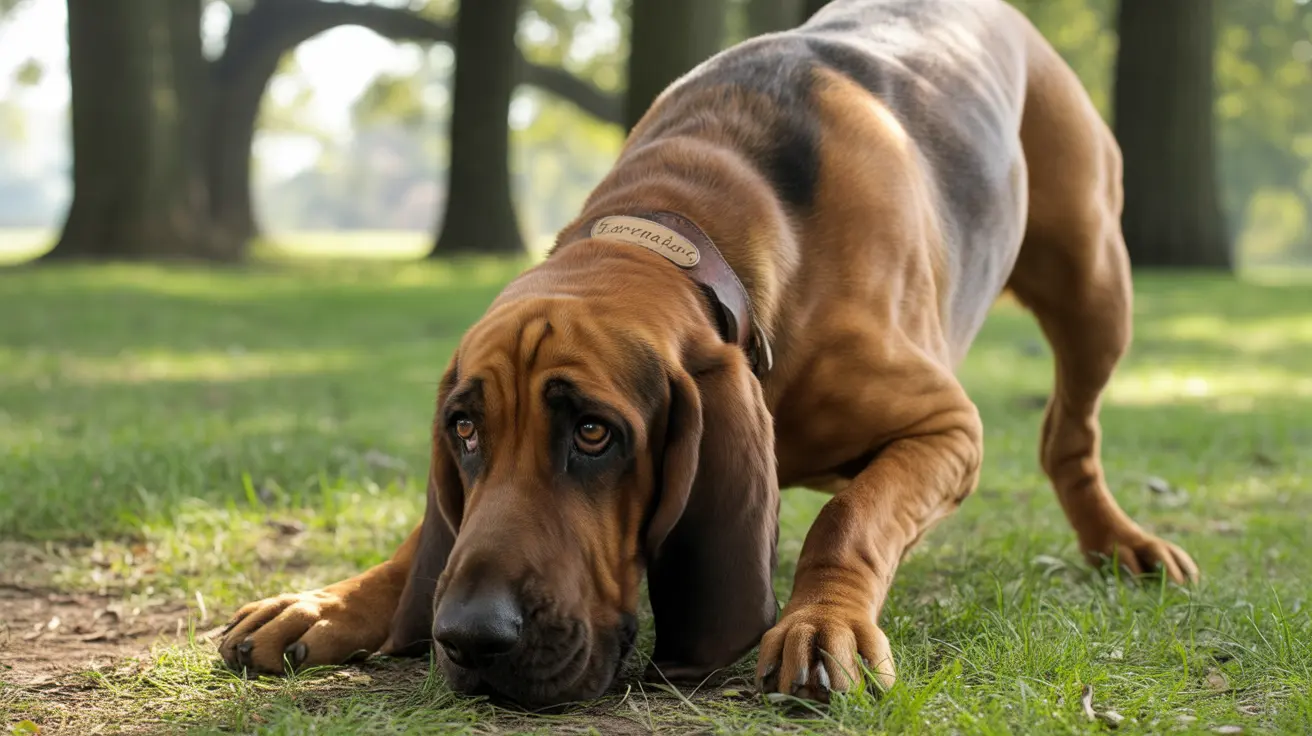If you've ever wondered why your dog seems obsessed with sniffing you, you're not alone. Dogs' extraordinary sense of smell is their primary way of understanding the world around them, and their sniffing behavior is deeply rooted in their biology and instincts.
With up to 250 million olfactory receptors in their noses (compared to our mere 5-6 million), dogs possess a sense of smell that's thousands of times more powerful than humans. This remarkable ability allows them to gather detailed information about their environment and the people in it, making sniffing an essential part of their daily communication and social interaction.
The Science Behind Your Dog's Superior Sense of Smell
Dogs' incredible sniffing abilities aren't just about having more scent receptors. Their olfactory cortex, the part of the brain that processes smells, is approximately 40 times larger than humans'. This sophisticated processing power allows them to detect substances at concentrations as low as one part per trillion – equivalent to finding a single drop in 20 Olympic-sized swimming pools.
Additionally, dogs possess a special organ called the Jacobson's organ (or vomeronasal organ) that enables them to detect subtle chemical changes in their environment, including hormonal variations in humans. This unique feature makes them exceptional at reading our physiological states and emotions through scent alone.
What Your Dog Learns Through Sniffing You
When your dog sniffs you intensely, they're gathering a wealth of information about your current state. Through their advanced olfactory capabilities, they can detect:
- Your emotional state and stress levels
- Recent activities and places you've visited
- Changes in your hormonal balance
- Potential illness or health changes
- Other animals you've encountered
This behavior is particularly noticeable when you return home after being away, as your dog is essentially "downloading" all the new information about where you've been and what you've experienced.
Common Reasons for Increased Sniffing Behavior
Dogs may increase their sniffing behavior for various reasons. Sometimes it's simply curiosity, while other times it might indicate they've detected something unusual about your scent. Common triggers include:
- Changes in your daily routine
- New hygiene products or perfumes
- Hormonal changes during pregnancy or menstruation
- Stress or illness
- Contact with other animals
- Recent medical procedures or medications
When to Pay Attention to Excessive Sniffing
While sniffing is normal dog behavior, sudden changes in sniffing patterns might warrant attention. If your dog begins obsessively sniffing a particular area of your body, they might be detecting an underlying health issue. Some dogs have been known to detect various medical conditions, including cancer, diabetes, and upcoming seizures, through their acute sense of smell.
Frequently Asked Questions
Why does my dog sniff me so much when I come home?
Dogs sniff you intensely after returning home to gather information about where you've been and what you've encountered. This behavior helps them reconnect with you and update their understanding of your recent experiences.
Can dogs smell my emotions or health changes through sniffing?
Yes, dogs can detect changes in your emotional state and health through their sense of smell. Their ability to smell hormonal changes and chemical signatures in your body makes them excellent at identifying stress, illness, and other physiological changes.
Why do dogs often sniff human crotch and armpit areas specifically?
These areas contain concentrated apocrine glands that release pheromones and other chemical signals. Dogs are naturally drawn to these spots because they provide the most information about a person's biological state.
What does it mean if my dog sniffs me excessively or repeatedly?
Excessive sniffing might indicate your dog has detected something unusual about your scent, such as stress, illness, or hormonal changes. It could also be a sign of anxiety or a learned behavior if it's been reinforced with attention.
How can I manage or respond to my dog's intense sniffing behavior?
While sniffing is natural and healthy, you can redirect excessive sniffing by providing alternative activities or training. Never punish sniffing behavior, but rather guide your dog to more appropriate activities when needed.
Conclusion
Understanding why your dog sniffs you so much helps strengthen your bond and appreciate their unique way of experiencing the world. This natural behavior is an essential part of how dogs communicate and gather information about their environment and loved ones. As long as the behavior isn't excessive or disturbing, it's best to allow your dog this important form of exploration and connection.






